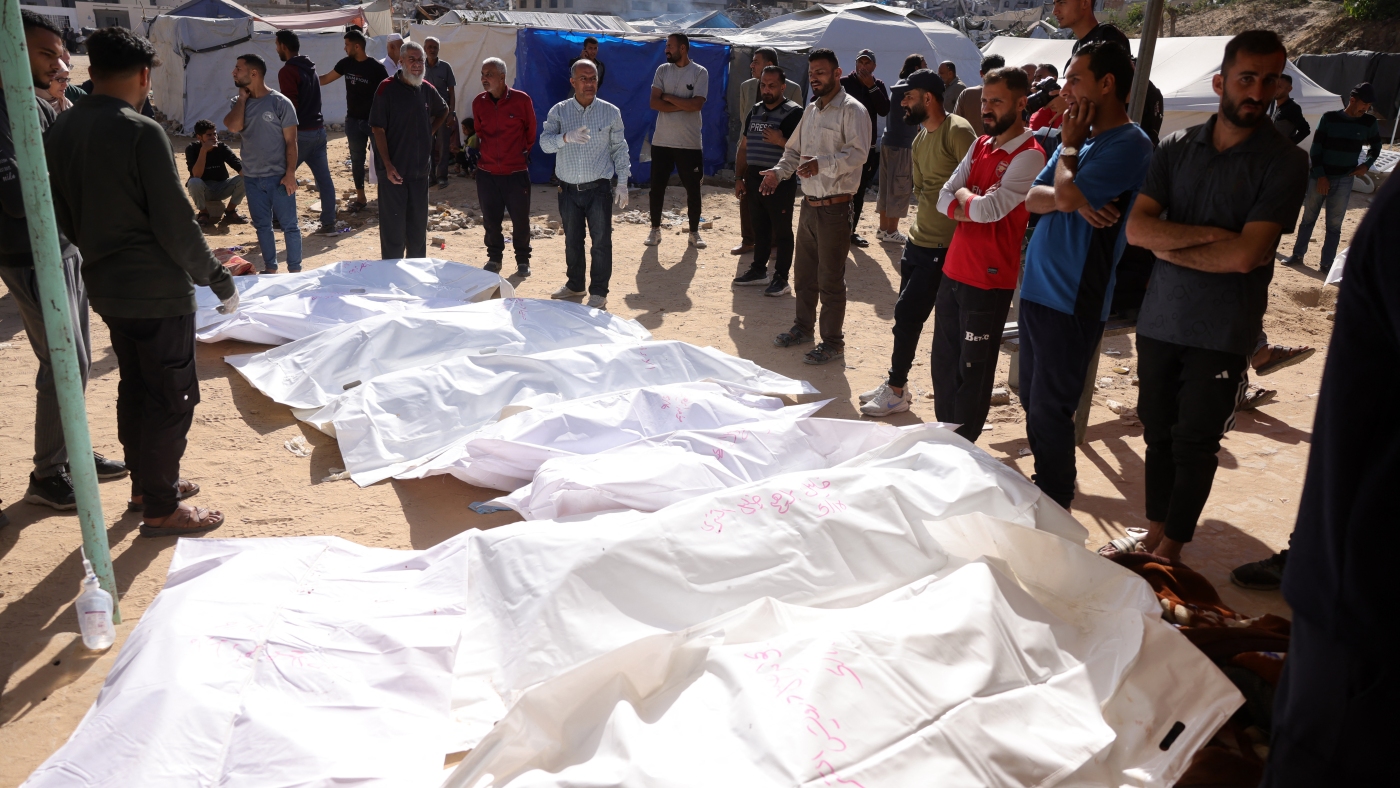The Escalation of Violence in Gaza: A Critical Analysis of Recent Airstrikes
Understanding the Current Surge
Gaza has recently witnessed one of the deadliest spikes in violence through a series of intense Israeli airstrikes. The tragic loss of over 100 Palestinian lives in a single day signals not only an alarming escalation but also serves as a stark reminder of the enduring volatility in a conflict stretching almost two years. This surge is not an isolated incident but rather a continuation and amplification of hostilities that have ebbed and flowed amid fragile ceasefires and uneasy truces.
The Human Toll and Immediate Impact
The sheer magnitude of casualties reported—dozens killed, many more injured, and numerous individuals unaccounted for under the rubble—paints a grim picture of civilian suffering. Hospitals and health authorities in Gaza have been overwhelmed, struggling to manage the influx of casualties amid infrastructural damage. The psychological trauma inflicted upon survivors, families, and the broader civilian population cannot be overstated; the suddenness and scale of the airstrikes exacerbate already deep-seated fears and insecurities.
These strikes disrupt daily life profoundly—destroying homes, schools, and critical infrastructure—further deepening humanitarian crises. Beyond the immediate physical damage, society faces a long-term challenge in rebuilding community trust and stability. The impact on children and vulnerable groups may have far-reaching consequences for the social fabric of Gaza.
Roots of the Escalation
This recent surge didn’t emerge from a vacuum. It punctuates months-long tensions that have simmered beneath the surface despite intermittent lulls. The reasons for heightened hostilities are multifaceted: political stalemates, disputed territories, retaliatory cycles, and broader regional dynamics all play roles. The breakdown of prior ceasefires or informal understandings often sparks such escalations, creating a feedback loop where violence begets further violence.
In this context, the latest airstrikes represent an intensification that breaks through what was a temporary calm, bringing destruction back to the forefront. Each act of aggression entrenches divisions and hardens stances on both sides, complicating prospects for meaningful dialogue or peace initiatives.
Broader Implications for Regional Stability
Escalations of this nature ripple beyond immediate casualties and physical destruction. They destabilize the already fragile socio-political equilibrium within Gaza and neighboring regions. The escalation may provoke retaliatory measures, inflame communal tensions, and draw in regional actors, feeding into a larger cycle of conflict.
The international community frequently raises concerns about civilian protection and adherence to humanitarian norms during such escalations, highlighting the complex interplay of military objectives and human costs. The dynamics of urban warfare in such densely populated areas introduce significant ethical and practical challenges to minimizing harm.
The Path Forward: Challenges and Considerations
Addressing and mitigating such escalations involves navigating a labyrinth of political, social, and humanitarian factors. Sustainable peace requires breaking the cycle of retaliation and investing in dialogue that acknowledges the grievances and security concerns of all parties involved.
Humanitarian access must be prioritized, ensuring adequate medical care and relief reach the affected populations promptly. Concurrently, efforts to rebuild infrastructure amid ongoing insecurity demand international assistance and local cooperation.
Trust-building measures, including transparent communication and accountability, are critical. Without these, the risk of further escalations remains high, perpetuating human suffering and regional instability.
Conclusion: A Moment for Reflection and Urgent Action
The recent devastating airstrikes on Gaza mark more than a spike in a long-standing conflict—they underscore the urgent need for renewed commitment to peace and humanitarian principles. The loss of over 100 lives in a single day is a somber reminder of the human cost behind geopolitical struggles.
Breaking this cycle of violence demands courage, empathy, and pragmatic diplomacy, recognizing the complex realities on the ground. For Gaza’s people, the hope rests in transforming moments of despair into catalysts for change—where dialogue replaces destruction, and healing begins amid the ruins.

